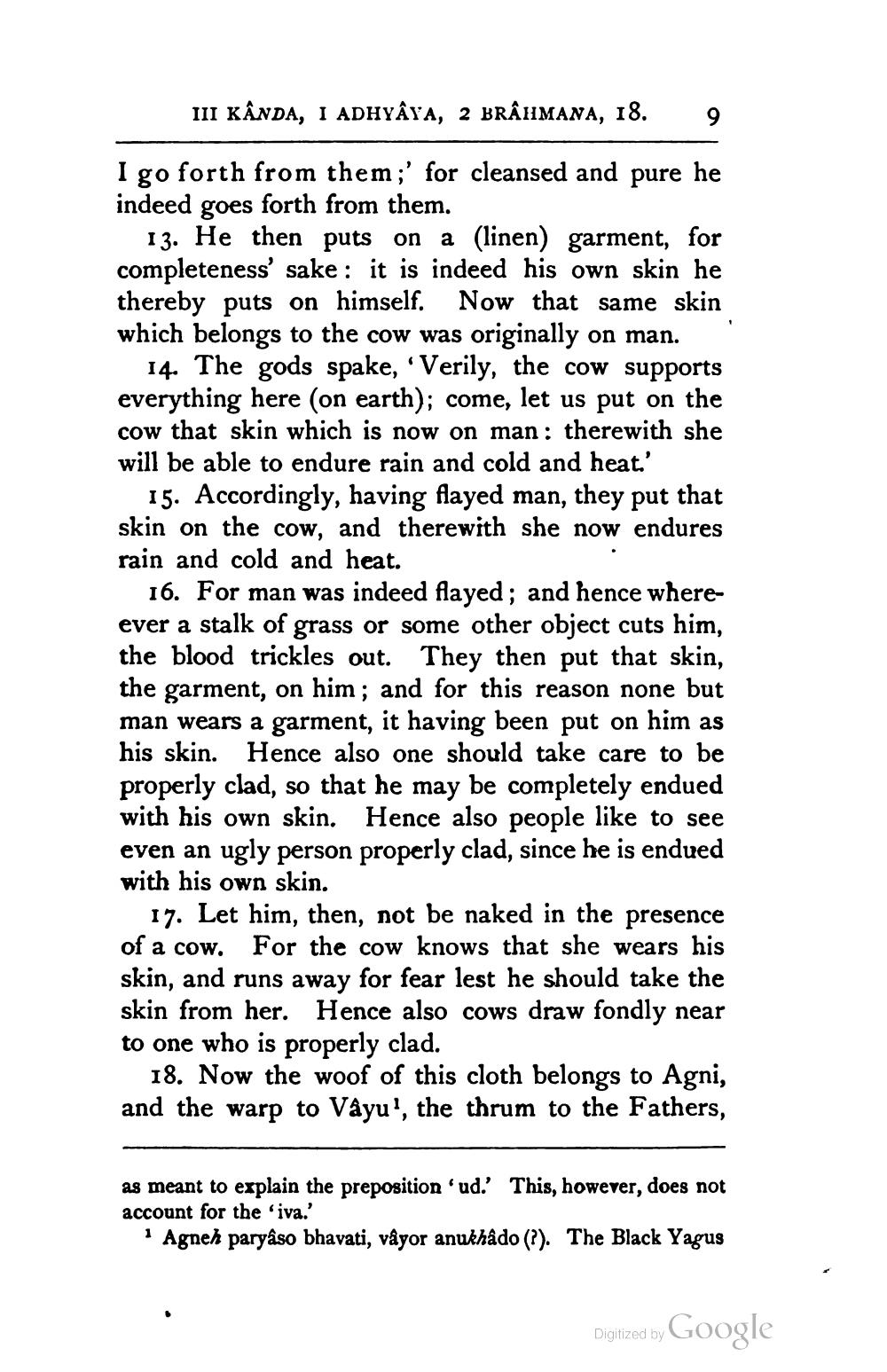________________
III KÂNDA, I ADHYÂYA, 2 BRÂHMana, 18.
I go forth from them;' for cleansed and pure he indeed goes forth from them.
13. He then puts on a (linen) garment, for completeness' sake: it is indeed his own skin he thereby puts on himself. Now that same skin which belongs to the cow was originally on man.
14. The gods spake, 'Verily, the cow supports everything here (on earth); come, let us put on the cow that skin which is now on man: therewith she will be able to endure rain and cold and heat.'
9
15. Accordingly, having flayed man, they put that skin on the cow, and therewith she now endures rain and cold and heat.
16. For man was indeed flayed; and hence whereever a stalk of grass or some other object cuts him, the blood trickles out. They then put that skin, the garment, on him; and for this reason none but man wears a garment, it having been put on him as his skin. Hence also one should take care to be properly clad, so that he may be completely endued with his own skin. Hence also people like to see even an ugly person properly clad, since he is endued with his own skin.
17. Let him, then, not be naked in the presence of a cow. For the cow knows that she wears his skin, and runs away for fear lest he should take the skin from her. Hence also cows draw fondly near to one who is properly clad.
18. Now the woof of this cloth belongs to Agni, and the warp to Vâyu', the thrum to the Fathers,
as meant to explain the preposition 'ud.' This, however, does not account for the 'iva.'
1 Agneh paryâso bhavati, vâyor anukhâdo (?). The Black Yagus
Digitized by Google




